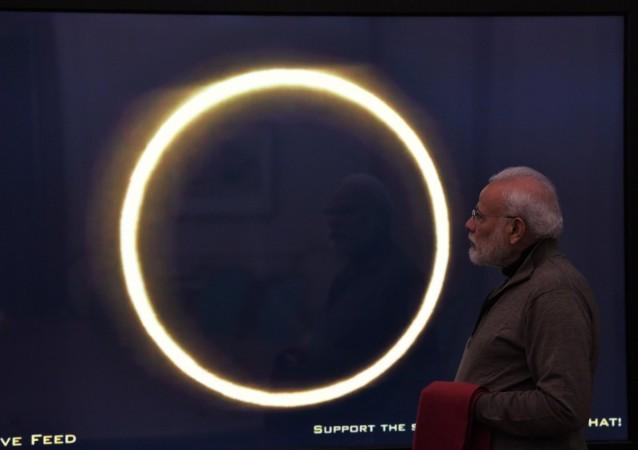
Prime Minister Narendra Modi on Thursday (December 26) morning said he could not see the 'ring of fire' - the solar eclipse or 'Surya grahan' due to cloud cover, but caught glimpses in Kozhikode and other parts on the live stream.
Taking to Twitter, PM Modi posted his pictures trying to see the Sun.
"Like many Indians, I was enthusiastic about #solareclipse2019. Unfortunately, I could not see the Sun due to cloud cover but I did catch glimpses of the eclipse in Kozhikode and other parts on live stream. Also enriched my knowledge on the subject by interacting with experts," tweeted PM Modi.
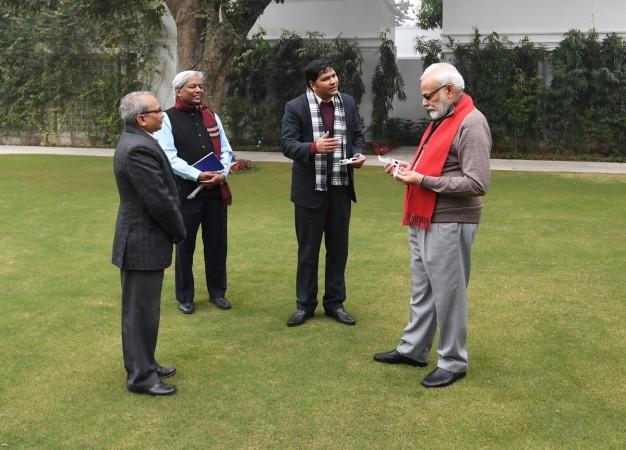
The ring of fire
When the Moon will be on the same path between the Earth and the Sun, it will cover the centre of Sun, which will result in a ring of fire.
Last solar eclipse of the decade
Several parts of India, including Kerala, Karnataka, Tamil Nadu, Gujarat, Odisha, Maharashtra and New Delhi, are witnessing the annual solar eclipse, which is said to the last one for the decade. The solar eclipse began at 7:59 am today morning. The December 26 solar eclipse is what is well known as an 'annular solar eclipse'.
Apart from India, Saudi Arabia, Qatar, United Arab Emirates, Oman, Sri Lanka, Malaysia, Indonesia, Singapore, Northern Mariana Islands, and Guam will be able to see the solar eclipse 2019.
Dubai witnessed solar eclipse
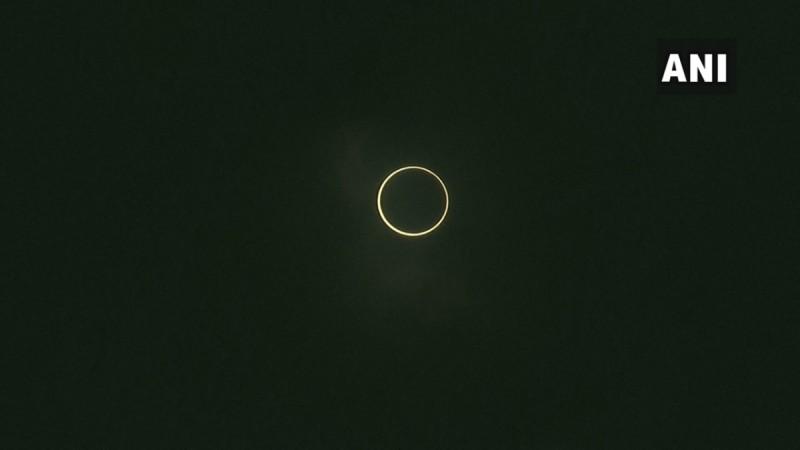
Solar eclipse in Tamil Nadu
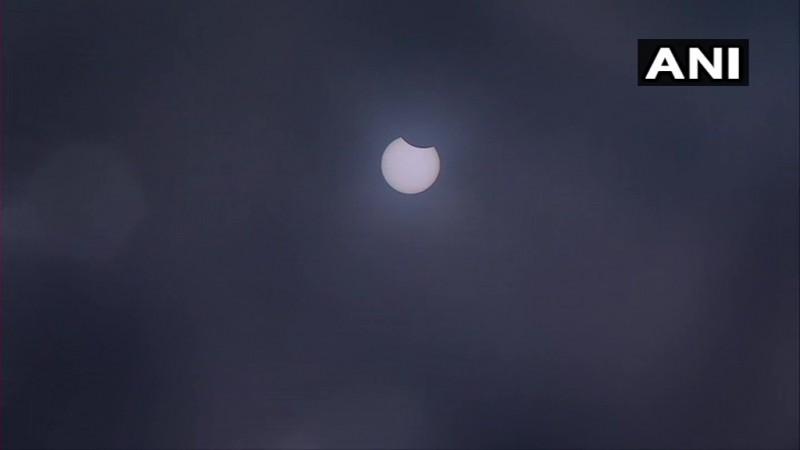
Solar eclipse visible from Ahmedabad, Gujarat
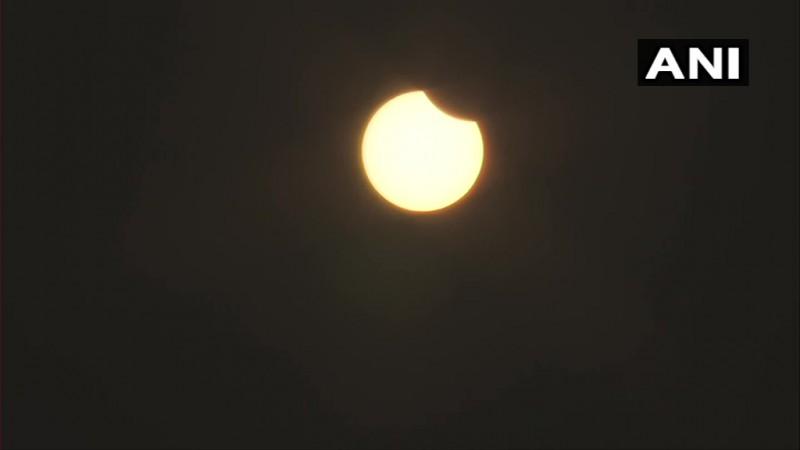
Delhi people were disappointed as fog blocked the view of the much-awaited annual solar eclipse today morning. However, people in the southern parts of India were able to watch the rare celestial spectacle.
"Solar eclipse will occur over Karnataka for around three hours from 8.06 a.m. to 11.11 a.m. but its visibility will depend on the weather as the cloudy sky may mar its clear viewing," Jawaharlal Nehru Planetarium Director Pramod Galgali told news agency IANS.

















